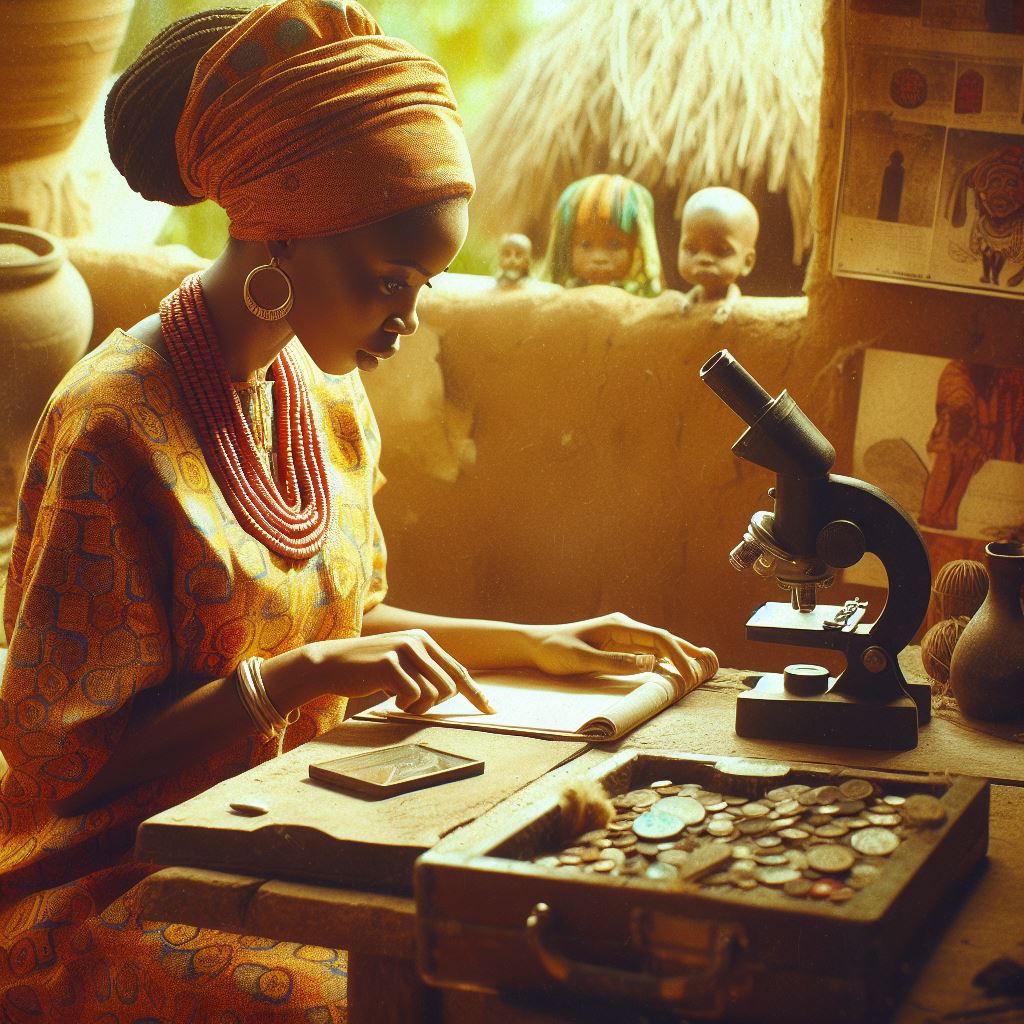Introduction
Nigeria, Africa’s most populous nation, grapples with rapid urbanization, presenting multifaceted challenges demanding nuanced understanding.
Urbanization, the process of rural migration to urban areas, is profoundly reshaping Nigeria’s societal landscape.
In Nigeria, urbanization poses significant challenges, including overcrowding, inadequate infrastructure, environmental degradation, and socioeconomic disparities.
Urban areas struggle to accommodate the influx of people, leading to strained resources and social tensions.
Rapid urbanization strains existing infrastructure, leading to overcrowding, traffic congestion, and inadequate housing.
Nigerian cities face immense pressure to provide essential services such as water, sanitation, and electricity to growing populations, exacerbating socioeconomic disparities.
Urbanization contributes to environmental degradation through deforestation, pollution, and loss of biodiversity.
Rapid urban expansion encroaches on natural habitats, exacerbating climate change and threatening ecosystems vital for biodiversity and human well-being.
Urbanization magnifies socioeconomic disparities, with marginalized communities bearing the brunt of inadequate infrastructure and limited access to basic services.
Informal settlements, characterized by poverty and insecurity, proliferate as rural migrants seek livelihood opportunities in urban areas.
Importance of Applying Anthropology
Anthropology offers invaluable insights into Nigerian urbanization issues by examining the complex interplay of cultural, social, and economic factors shaping urban dynamics.
By employing ethnographic methods, anthropologists immerse themselves in local contexts to understand how urbanization impacts communities.
Cultural Dynamics
Anthropology illuminates the cultural dynamics influencing urbanization, including migration patterns, social networks, and cultural practices.
Understanding cultural norms and beliefs enables policymakers to design culturally sensitive interventions that resonate with local communities.
Social Structures
Anthropological inquiry reveals the intricate social structures within urban settings, highlighting power dynamics, social hierarchies, and identity formations.
By exploring social relationships and group dynamics, anthropologists elucidate how urbanization shapes community cohesion and social inclusion.
Economic Realities
Anthropology elucidates the economic realities of urbanization, examining livelihood strategies, informal economies, and labor markets.
By analyzing economic activities and resource distribution, anthropologists inform policies aimed at promoting sustainable development and economic resilience.
Policy Implications
Applying anthropology to Nigerian urbanization issues facilitates the development of context-specific policies that address the root causes of urban challenges.
By incorporating anthropological insights, policymakers can foster inclusive urban development that prioritizes community participation and cultural preservation.
In short, Nigerian urbanization issues demand holistic approaches grounded in anthropological perspectives.
By understanding the cultural, social, and economic dimensions of urbanization, Nigeria can navigate the complexities of rapid urban growth while promoting sustainable development and social equity.
Historical context of Nigerian urbanization
Historical Context: A Journey Through Time
Urbanization in Nigeria traces back to pre-colonial times, marked by the emergence of bustling trade routes.
As trade flourished, towns and cities emerged as economic hubs, fostering cultural exchange and social dynamics.
The arrival of colonial powers in the late 19th century reshaped Nigeria’s urban landscape profoundly.
Evolution of Urbanization: From Past to Present
Post-independence, rapid urbanization ensued, fueled by rural-to-urban migration and industrialization.
Cities expanded exponentially, grappling with infrastructural challenges and socio-economic disparities.
In recent decades, globalization has accelerated urban growth, transforming Nigeria’s cities into nodes of interconnectedness.
Impact of Colonialism: Shaping Urban Spaces
Colonial administrations imposed spatial segregation, dividing cities along racial and socio-economic lines.
This segregation entrenched inequalities, shaping the physical and social fabric of Nigerian urban centers.
Legacy infrastructures, such as railways and administrative buildings, still bear colonial imprints, influencing urban dynamics.
Independence Era: Urbanization Amidst Change
Following independence in 1960, Nigeria embarked on nation-building efforts, driving urbanization policies and infrastructure development.
Urban centers became symbols of progress, attracting investments and fostering cultural diversity.
However, rapid urbanization strained resources, leading to informal settlements and urban sprawl.
Globalization: Catalyst for Urban Transformation
Global economic forces have reshaped Nigeria’s urban landscape, fueling the rise of mega-cities and commercial districts.
Foreign investments and transnational corporations have contributed to urban development, but also posed challenges of gentrification.
Cultural exchange and technological advancements have transformed urban lifestyles, shaping identities and consumption patterns.
Navigating Urban Challenges Through Anthropological Insights
Anthropological research provides valuable insights into the complexities of Nigerian urbanization.
Understanding cultural practices and social norms is crucial for sustainable urban development strategies.
Engaging with local communities empowers them as active participants in shaping their urban environments.
In a nutshell, Nigeria’s urbanization journey reflects a tapestry of historical legacies, socio-economic shifts, and global influences.
By acknowledging diverse perspectives and fostering inclusive policies, Nigerian cities can navigate challenges and embrace opportunities.
Anthropological approaches offer a holistic framework for envisioning urban futures that prioritize equity, resilience, and cultural vitality.
Read: Communication Arts: Job Prospects and Salaries
Cultural Perspectives on Urbanization in Nigeria
Urbanization in Nigeria is more than just a shift in population; it’s a transformation deeply rooted in cultural dynamics.
Traditional Beliefs and Practices
Traditional beliefs and practices play a significant role in shaping urbanization patterns in Nigeria.
Historically, many Nigerian cultures have strong ties to the land and rural lifestyles.
However, as urban centers grow, traditional beliefs often adapt to accommodate urban living.
For instance, rituals once performed in rural settings may now take place in urban areas.
Analysis of Cultural Norms
Cultural norms exert a profound influence on urban life in Nigerian cities.
Respect for elders, a fundamental cultural norm, impacts urban interactions and governance.
Transform Your Career with Expert Guidance
Get personalized mentorship consulting that’s tailored to your unique path. Our expert advice is actionable and exclusive.
Get StartedExtended family structures, customary in Nigeria, shape housing and support systems in urban areas.
Language diversity, reflecting Nigeria’s multicultural fabric, adds richness and complexity to urban spaces.
Cultural Integration in Urban Settings
As urbanization progresses, traditional and modern elements intertwine in Nigerian cities.
Markets become hubs where traditional goods coexist with modern commodities.
Religious practices blend, with traditional ceremonies often incorporated into Christian or Islamic rituals.
Food culture evolves, with traditional dishes adapting to urban lifestyles while maintaining cultural authenticity.
Challenges and Opportunities
While cultural integration enriches urban life, it also presents challenges.
Rapid urbanization can strain traditional social structures and support systems.
Conflict may arise as modernization clashes with deeply held cultural values.
Yet, these challenges also present opportunities for innovation and adaptation.
In review, cultural perspectives are crucial for understanding urbanization in Nigeria.
Traditional beliefs, practices, and norms shape urban landscapes and social dynamics.
As Nigeria continues to urbanize, acknowledging and integrating cultural perspectives will be key to sustainable development.
By embracing cultural diversity, Nigerian cities can thrive as vibrant centers of both tradition and progress.
Read: Impact of Communication Arts on Nigerian Media
Urban social dynamics in Nigeria
Urban areas in Nigeria are characterized by a complex web of social interactions that shape the daily lives of its inhabitants.
From the bustling streets of Lagos to the quiet neighborhoods of Abuja, these dynamics influence everything from economic opportunities to social connections.
Examining social hierarchies, inequalities, and conflicts
One of the key aspects of urban social dynamics in Nigeria is the presence of clear social hierarchies that often lead to inequalities and conflicts.
These hierarchies can be based on factors such as wealth, education, and occupation, creating a divided society where certain groups have more power and privilege than others.
Role of ethnicity, religion, and class in shaping urban communities
Ethnicity, religion, and class play a significant role in shaping urban communities in Nigeria. With over 250 ethnic groups and a diverse range of religious beliefs, these factors can influence where people live, work, and socialize.
Class also plays a crucial role, with disparities in income and access to resources creating distinct social strata within urban areas.
Challenges of Urbanization in Nigeria
As Nigeria continues to urbanize at a rapid pace, it faces a number of challenges related to infrastructure, housing, and social services.
Rapid population growth has put a strain on existing resources, leading to overcrowded cities, inadequate housing, and limited access to basic services such as healthcare and education.
Impact of urbanization on traditional social structures
The process of urbanization in Nigeria has had a significant impact on traditional social structures, leading to changes in family dynamics, social norms, and community relationships.
As more people move to cities in search of better opportunities, traditional ways of life are often disrupted, leading to a sense of disconnection and alienation among urban dwellers.
Opportunities for applying anthropology to urbanization issues
Anthropologists can play a crucial role in addressing the challenges of urbanization in Nigeria by conducting research, providing insights into local cultures, and understanding the social dynamics at play.
By working closely with communities and policymakers, anthropologists can help develop sustainable solutions that take into account the unique cultural context of urban areas.
Engaging with local communities to promote social cohesion
One way that anthropologists can contribute to urbanization issues in Nigeria is by engaging with local communities to promote social cohesion and understanding.
By fostering dialogue and collaboration among different social groups, anthropologists can help build trust and create a sense of unity in urban areas.
Advocating for inclusive urban development policies
Anthropologists can also advocate for inclusive urban development policies that prioritize the needs of all residents, regardless of their ethnicity, religion, or class.
By highlighting the importance of social equity and justice in urban planning, anthropologists can help create more sustainable and inclusive cities that benefit everyone.
In fact, the study of urban social dynamics in Nigeria is essential for understanding the complexities of urbanization and addressing the challenges it presents.
By examining social hierarchies, inequalities, and conflicts, as well as the role of ethnicity, religion, and class in shaping urban communities, anthropologists can contribute valuable insights that promote social cohesion and inclusive urban development.
Read: Internship Opportunities for Communication Arts Students

Uncover the Details: Nigerian Language Policy: Government and Education
Find Out More: Mass Communication and Media Studies in Nigeria
Discover More: Top Nigerian Fashion Designers You Should Follow
Explore Further: Public Speaking Tips for Communication Students
Explore Further: How Criminology Helps Fight Crime in Nigeria
Uncover the Details: The Future of Nigerian Art in a Global Context
Gain More Insights: Technological Integration in African and Asian Studies
Urban infrastructure and development challenges
Urbanization in Nigeria has spurred significant challenges in infrastructure development, impacting various aspects of city life.
Housing Crisis: A Looming Challenge
Rapid urbanization exacerbates the housing shortage, leading to overcrowding and informal settlements.
Inadequate housing options force many to live in substandard conditions, lacking basic amenities like water and sanitation.
Transportation Woes: Struggling with Mobility
Nigerian cities grapple with inefficient transportation systems, resulting in traffic congestion and limited accessibility.
Poor road networks and insufficient public transportation infrastructure hinder the movement of people and goods.
Sanitation Struggles: Addressing Public Health Risks
Urbanization strains sanitation services, leading to improper waste management and pollution of water sources.
Lack of proper sewage systems exposes residents to health hazards, contributing to the spread of diseases.
Public Service Deficits: Meeting Urban Demands
Nigeria’s urban centers face challenges in providing essential public services such as healthcare, education, and electricity.
Overwhelmed by rapid urbanization, existing facilities struggle to meet the growing demand, affecting service quality.
Impact of Rapid Urbanization on Infrastructure and Environment
The rapid influx of people into cities strains existing infrastructure, leading to its deterioration and inability to meet demand.
Increased construction activities and land use changes contribute to environmental degradation, including deforestation and pollution.
Addressing the Urbanization Conundrum: A Call to Action
To tackle these challenges, policymakers must prioritize infrastructure development to support sustainable urban growth.
Investments in affordable housing, efficient transportation systems, and improved sanitation are imperative for urban development.
Promoting inclusive planning strategies and community engagement can ensure that infrastructure projects meet the needs of all residents.
Collaboration between government, private sector, and civil society is essential to implement holistic solutions and address urbanization issues effectively.
Generally, addressing urban infrastructure challenges in Nigeria requires a concerted effort from all stakeholders to create livable and resilient cities for future generations.
Read: Comparing Communication Arts and Mass Communication
Applying anthropological methods to urbanization research
Applying anthropological methods to urbanization research
Anthropology offers invaluable tools to dissect the complexities of urbanization, particularly in a vibrant and evolving context like Nigeria.
Importance of fieldwork, participant observation, and interviews
Fieldwork immerses researchers in the heartbeat of urban life, providing firsthand experiences crucial for understanding diverse communities.
Participant observation fosters deep empathy and insight into daily struggles, aspirations, and social dynamics. Interviews amplify voices often marginalized, enriching data with personal narratives and diverse perspectives.
In Nigeria’s urban landscape, these methodologies illuminate the intersection of tradition and modernity, shedding light on the adaptive strategies of communities grappling with rapid urban expansion.
Ethical considerations in engaging with diverse urban populations
Ethical engagement with urban populations demands sensitivity to cultural nuances, power differentials, and informed consent.
Respect for privacy, confidentiality, and local customs safeguards against exploitation and ensures research integrity.
Navigating ethical dilemmas, particularly in a diverse country like Nigeria, requires continual reflection, flexibility, and dialogue with stakeholders. Engaging communities as partners, rather than subjects, fosters mutual trust and reciprocity.
As researchers delve into Nigerian urban spaces, they encounter a tapestry of identities, histories, and aspirations.
Understanding Urbanization Dynamics in Nigeria
Nigeria’s urbanization journey is a narrative of contrasts – soaring skylines juxtaposed with sprawling slums, bustling markets pulsating with life alongside quiet alleyways steeped in tradition.
Anthropologists traverse these diverse landscapes, unraveling the intricate threads of migration, livelihoods, and social networks.
The Role of Anthropology in Shaping Urban Policy
Anthropological insights are instrumental in crafting inclusive urban policies that resonate with the lived realities of Nigeria’s diverse urban populations.
By amplifying marginalized voices and challenging entrenched narratives, anthropology advocates for policies that prioritize social justice, environmental sustainability, and cultural preservation.
Basically, In Nigeria’s urbanization saga, anthropology serves as a compass, guiding policymakers, planners, and communities towards inclusive, sustainable urban futures.
By embracing the richness of anthropological methods and upholding ethical principles, we can navigate the complexities of urbanization with empathy, humility, and resilience.
Together, we can forge cities that are not only vibrant and dynamic but also equitable and just.
Learn More: Impact of Mass Communication on Nigerian Society
Gain More Insights: Career Paths with an English Language Degree in Nigeria
Conclusion
Summary of Key Points
Anthropology offers valuable insights into Nigerian urbanization challenges, revealing the complexities of cultural, social, and economic dynamics.
By examining local customs, traditions, and behaviors, anthropologists can uncover underlying factors driving urbanization and its impact on communities.
Through ethnographic research, anthropologists can understand how urbanization influences identities, social structures, and power dynamics within Nigerian cities.
This understanding is crucial for developing sustainable urban policies that prioritize the needs and aspirations of diverse populations.
Moreover, anthropology provides a holistic perspective on urbanization, considering the interplay between environmental factors, governance systems, and globalization processes.
This multidimensional approach enables policymakers to address urban challenges comprehensively, fostering inclusive and resilient cities.
Call to Action: Applying Anthropology
To effectively address Nigerian urbanization issues, it is imperative to integrate anthropological perspectives into urban planning and development strategies.
Anthropologists can collaborate with policymakers, urban planners, and community stakeholders to co-create solutions that reflect local contexts and priorities.
Firstly, anthropological research can inform evidence-based policymaking by providing nuanced insights into the lived experiences of urban residents.
By incorporating local knowledge and perspectives into policy formulation, decision-makers can design interventions that are contextually relevant and culturally sensitive.
Secondly, anthropologists can facilitate participatory approaches to urban planning, engaging communities in decision-making processes and empowering them to shape their own environments.
This bottom-up approach fosters ownership and social cohesion, leading to more sustainable and equitable urban development outcomes.
Furthermore, anthropologists can advocate for inclusive urban governance structures that recognize and respect diverse cultural practices and social identities.
By promoting dialogue and collaboration among different stakeholders, anthropologists can help bridge existing divides and build consensus around shared urban visions.
Ultimately, applying anthropology to Nigerian urbanization issues requires a concerted effort from all stakeholders, including government agencies, civil society organizations, academia, and local communities.
By leveraging anthropological insights and methodologies, we can create cities that are not only economically prosperous but also socially just and environmentally sustainable.
In closing, anthropology offers a valuable toolkit for understanding and addressing the complex challenges of Nigerian urbanization.
By embracing interdisciplinary collaboration and community engagement, we can build cities that are inclusive, resilient, and responsive to the diverse needs of their inhabitants.
It is time to recognize the transformative potential of anthropology and harness it to shape the future of Nigerian urban landscapes.




